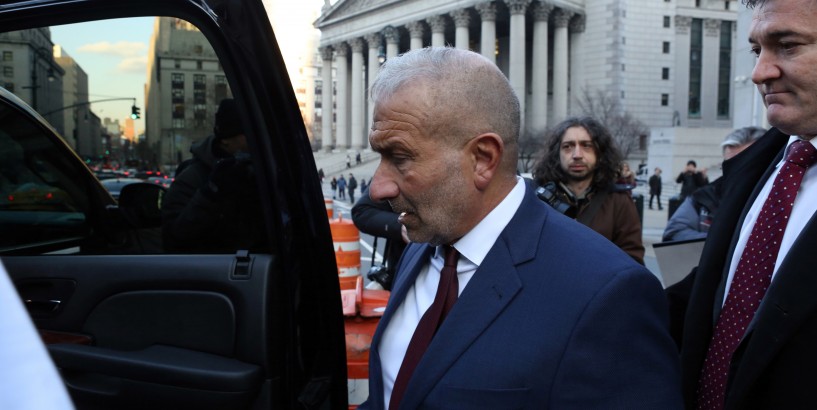The federal judge presiding over the state contracting trials has sent a loud and clear message: Engaging in public corruption will land you in prison.
Alain Kaloyeros was the latest convicted figure in the case to be sentenced to time behind bars, getting 3½ years.
Kaloyeros, former head of SUNY Polytechnic Institute and a key player in Gov. Andrew M. Cuomo’s upstate economic development program, pleaded for leniency from U.S. District Court Judge Valerie E. Caproni, saying he was filled with remorse. She was unmoved. Caproni said Kaloyeros’ sentence, which includes two years of supervised release and a $100,000 fine, “should serve as a warning to others in government everywhere: You are serving the public. ... If you can’t live with that, then get out of government.”
Kaloyeros was convicted in July of presiding over a bid-rigging scheme that steered $855 million to favored contractors, including Louis P. Ciminelli of Buffalo, who was sentenced last week. Kaloyeros and Ciminelli remain free pending appeals.
For those scoring at home, the prison terms handed out in bid-rigging cases this year: Joseph Percoco, six years; Kaloyeros, 42 months; Steven Aiello, three years; Joseph Gerardi, 30 months; Ciminelli, 28 months; Peter G. Kelly Jr., 14 months.
Percoco, convicted of bribery and wire fraud, is a former top aide and longtime confidant to Cuomo. Aiello and Gerardi are Syracuse developers, and Kelly an energy company executive.
Preet Bharara, then the U.S. attorney in Manhattan, four years ago started a series of corruption prosecutions that culminated in the Buffalo Billion convictions. And while Caproni sent a strong anti-corruption message, one federal judge cannot reverse Albany’s culture of secrecy and influence peddling. The executive and legislative branches of state government must assert themselves.
Among the needed reforms:
Abolish the “LLC loophole,” which allows wealthy donors to evade limits on political donations through an artifice that declares limited liability corporations to be people, with a higher cap on donations. The policy also allows wealthy givers to create as many LLCs as they like. Prohibit those seeking state contracts – such as for construction of the $750 million RiverBend project in South Buffalo – from making donations to candidates. As part of cleaning up the bidding on government contracts, create an online database of private sector deals. That would show the public who is benefiting from state dollars. One day before Kaloyeros was sentenced, an Albany panel that was convened to decide on a pay raise for state lawmakers made official its recommendation awarding them a 64 percent raise over the next two years, in exchange for new rules curtailing their outside income. The panel said the new rules would lessen the perception of conflicts of interest among members of the Senate and Assembly.
The raise seems excessive, but it is encouraging that there is movement on preventing the conflicts – especially for lawyers – from special interests funneling business to legislators in hopes of swaying their votes.
Albany’s culture of corruption was a central theme among Republican candidates for state office in November’s elections. Letitia James, the Democratic state attorney general-elect who was endorsed by Cuomo, pledged that as attorney general, she “will have zero tolerance for corruption of any kind and will use every tool at my disposal to root out corruption in New York.”
Both houses of the Legislature will be under Democratic control when seated in January, and Cuomo’s fellow Democrats say ethics reforms are a priority. With the political winds at his back, the governor will have a chance to push for lasting ethics reforms. It’s time for all involved to walk the walk.









